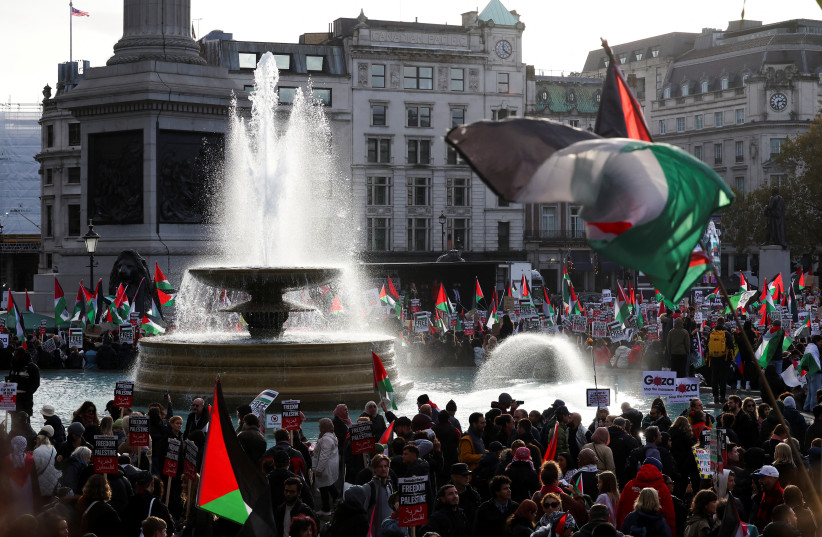In recent months, Europe has faced a series of challenges stemming from radical shifts in ideology, notably highlighted by the failure of Israeli intelligence to warn of a Hamas attack. The aftermath has seen a surge in extreme Islamist celebrations and terrorist parades across European capitals, awakening a realization that radical Islam is becoming a threat to the liberal continent.
This realization, in turn, has yielded political shifts. The prominence that Geert Wilders gained in Dutch politics – his Party for Freedom won the recent parliamentary elections by a landslide – reflects a global trend favoring so-called “extreme Right” candidates.
Terrorist parades in London, Paris, and Amsterdam that are disrupting the cities’ peace have brought to a head the problems originating from the growing influence of radical progressive movements over the past decades. Local communities bear the brunt, experiencing fear and economic strain as businesses close and public spaces lose vibrancy. Responses from European governments vary, showcasing the complexities of dealing with this multifaceted issue.
The media’s role deserves a critical evaluation for the apparent disconnect between mainstream and institutional media, on the one hand, and the citizens they serve, on the other. Over the last decades, the media has increasingly delegitimized local culture and national sentiments.
'What the media says – do the opposite'
As a strategic consultant, I propose a counterintuitive approach to media engagements: a “what the media says – do the opposite” strategy. Despite biased portrayals, most Europeans remain open-minded and hospitable but understand that the influence of extreme progressive ideologies threaten to tear down social and cultural fabrics, substituting them with an intolerance that is reminiscent of the Hamas model.
As we navigate through these turbulent times, we need to address the root causes of discontent. To that end, bridging the gap between the intellectual elite and the public becomes paramount. Leaders who genuinely understand citizens’ concerns and commit to protecting their unique values, developed and passed on through succeeding generations, are likely to prevail in this era of uncertainty. The war on national identity is a battle for the soul of a nation, shaping the trajectory of countries for years to come.
Confronted with these challenges, leaders who prioritize core values find success. Love for one’s country, family warmth, and shared traditions resonate universally, providing a basis for leaders addressing the dangers posed by radical progressive ideologies.
Political candidates are now rightly expected to focus on core values that resonate with the public. Despite being degraded in media studios, these values strike a chord with the public, which recognizes the danger posed by radical progressive movements.
The battle for national identity is not on the battlefield but at the ballot box, where voters increasingly recognize the need to protect their cultural heritage. This call to action transcends political affiliations, uniting people against a common threat. It will end in victory.
The writer, a strategic adviser and a creative director to world leaders, is the founder of www.perception.media.
Recent political shifts show battles for national identity - opinion
Leaders who genuinely understand citizens’ concerns and commit to protecting their unique values, developed and passed on through succeeding generations, are likely to prevail.

